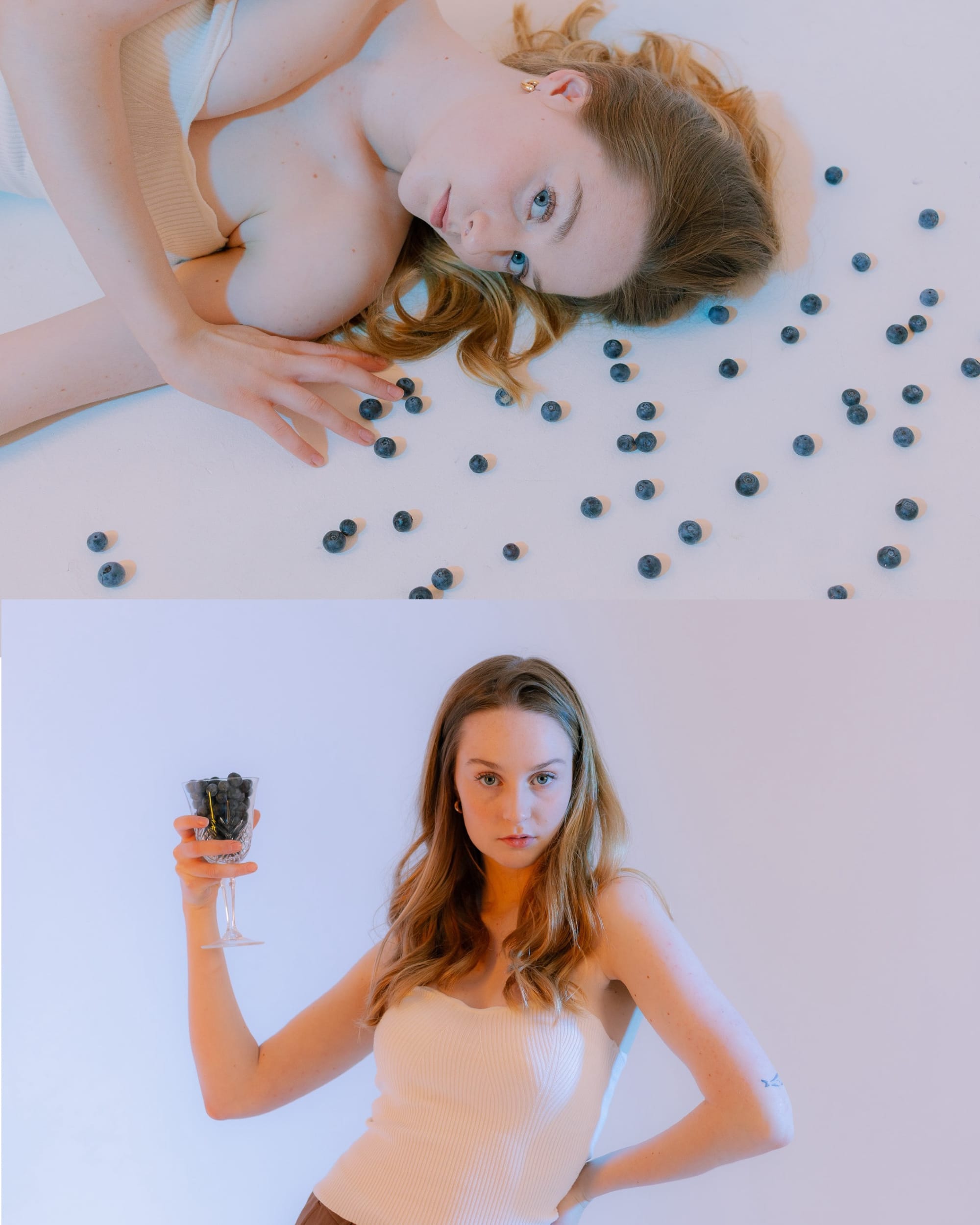Grape Expectations: Resveratrol’s Battle Against Cancer

What Is Resveratrol?
Imagine a superhero that plants create to protect themselves from harm. That's resveratrol! It's a compound that plants produce when they're under attack from nasty bacteria, fungi, or even when they're stressed out by too much sunlight. It's nature's very own defense mechanism! Scientists are excited about resveratrol's ability to potentially fight cancer cells and potentially slow down the aging process, making it a compound that's truly bursting with promise!
Where Can You Find It?
Here's the fun part - resveratrol is hiding in some of your favourite foods! Let's look at the top sources and their resveratrol content (in nanograms per gram of dry sample):
• Grapes: 6,471 ng/g - The skin of these juicy fruits is packed with resveratrol. Red and purple grapes tend to have higher concentrations.
• Lingonberries: 5,884 ng/g - These tart berries are resveratrol powerhouses!
• Peanuts: 5,100 ng/g - Who knew your PB&J sandwich could be so health-boosting?
• Cranberries: 900 ng/g - These tart treats are more than just a Thanksgiving staple.
• Bilberries: 768 ng/g - A lesser-known berry with a resveratrol punch.
• Peanut Butter: 300 ng/g - Creamy or crunchy, it's got resveratrol.
• Red Wine: While quantities can vary, red wine does contain resveratrol. However, it's important to note that alcohol consumption, even in moderate amounts, can increase the risk of certain cancers. The healthiest way to get resveratrol is through non-alcoholic sources like fresh fruits and nuts.
Resveratrol: The Cancer-Fighting Ninja
Now, let's talk about the multiple ways resveratrol might help fight cancer.
- Oxidative Stress Buster: Resveratrol is an antioxidant extraordinaire. It regulates a key protein called FoxO1, which helps fight off harmful free radicals in your body, thereby reducing oxidative stress. Why does this matter? Oxidative stress can damage your DNA, potentially leading to cancer. By reducing this stress, resveratrol may help prevent the very first steps of cancer formation.
- Inflammation Fighter: Chronic inflammation is like a slow-burning fire in your body that can fuel cancer growth. Resveratrol has shown anti-inflammatory properties, potentially putting out this fire and creating an environment less favorable for cancer cells to thrive.
- The Cell Death Promoter: This might sound scary, but it's actually a good thing! Resveratrol has been shown to promote apoptosis - the process where damaged or potentially cancerous cells self-destruct. It's like resveratrol is teaching bad cells to do the right thing and bow out gracefully.
- The Tumor Growth Inhibitor: Some studies have shown that resveratrol might be able to slow down or even stop tumor growth. In one study with ovarian cancer cells, resveratrol decreased cell proliferation (the rapid multiplication of cancer cells) while increasing apoptosis.
- The Metastasis Preventer: Metastasis - the spread of cancer from one part of the body to another - is often what makes cancer so dangerous. Exciting animal studies have shown that resveratrol treatments prevented both liver metastases and ovarian cancer growth.
The Sirtuin Connection
One of the most intriguing mechanisms of resveratrol's anticancer effects involves a family of proteins called sirtuins. Resveratrol can activate certain sirtuins (like SIRT1) while inhibiting others (like SIRT5) to help manage oxidative stress and apoptosis. This balancing act seems to play a crucial role in resveratrol's cancer-fighting and anti-aging properties.
The Fountain of Youth in a Grape?
While resveratrol's potential cancer-fighting properties are exciting, there's another reason this compound has scientists buzzing: its possible anti-aging effects. That's right, the secret to staying young might be hiding in your fruit bowl!
- Cellular Time Machine: Resveratrol appears to activate proteins called sirtuins,
particularly SIRT1. These proteins are like cellular janitors, cleaning up damage and helping cells stay healthy longer. - Oxidative Stress Shield: As we age, our bodies accumulate damage from oxidative stress. Resveratrol's potent antioxidant properties may help shield our cells from this damage, potentially slowing down the aging process.
- Brain Protector: As we age, our brains become more vulnerable to damage and disease. Resveratrol has shown promise in protecting brain cells from death, and some studies have even shown it can promote the growth of new neurons. It's like a personal bodyguard for your brain cells!
- Inflammation Fighter: Chronic inflammation is a key player in many age-related diseases such as cardiovascular disease. Resveratrol's anti-inflammatory properties might help keep this under control, potentially warding off age-related illnesses.
The Plot Twist
Before you rush off to buy a basketful of grapes, there's a catch. Most of the exciting research has been done in test tubes or on animals. We're still not sure if it works exactly the same way in humans. Plus, our bodies might not absorb it very well from supplements. Remember, when it comes to cancer prevention, there's no magic bullet. A balanced diet rich in fruits and vegetables, regular exercise, and avoiding known carcinogens like tobacco are still your best bets. But hey, if
that balanced diet includes some resveratrol-rich foods, all the better!
Want to Get Started? Here’s an Easy Recipe Involving
Resveratrol
Grape Sorbet
Ingredients:
• 4 cups seedless red or black grapes (washed and stemmed)
• 1/2 cup sugar (or to taste, you can also use honey or a sugar substitute)
• 1 tablespoon lemon juice
• 1/2 cup water
Instructions:
- Prepare the Grapes: Place the grapes in a blender or food processor. Blend until smooth.
- Strain the Mixture: Pour the grape puree through a fine-mesh sieve or cheesecloth into a large bowl to remove the skins and any solids. You should have about 3 cups of smooth
grape juice. - Sweeten and Flavor: Stir the sugar (or honey) into the grape juice until dissolved. Add the lemon juice and water, mixing well.
- Chill the Mixture: Place the mixture in the refrigerator and chill for about 1-2 hours until it’s well chilled.
- Freeze the Sorbet:
• Ice Cream Maker Method: Pour the chilled grape mixture into an ice cream
maker and churn according to the manufacturer’s instructions, usually about 20-25 minutes, until it reaches a soft-serve consistency.
• No Ice Cream Maker Method: Pour the mixture into a shallow dish and place it in the freezer. Every 30 minutes, use a fork to stir and scrape the mixture,
breaking up ice crystals until the sorbet is fluffy and frozen (this may take about
3-4 hours). - Serve: Scoop the sorbet into bowls or cones. Garnish with a few whole grapes or a mint leaf if desired.
Meal Planning Made Easy
Remember, while resveratrol is awesome, it's just one piece of the cancer prevention puzzle. For more info on other cancer-fighting foods and lifestyle tips, keep exploring Anticancer.ca. Your body will thank you!
Stay healthy, stay informed, and don't forget to eat your grapes!
This article is based on peer-reviewed information. Read the full article about resveratrol for comprehensive scientific evidence, clinical trial information, and citations: https://anticancer.ca/docs/resveratrol
Written by Adin Aggarwal and Isabella Kojundzic
Photographer: @genpicache.photography (Instagram)
Model: @maddyy.hornnn (Instagram)




